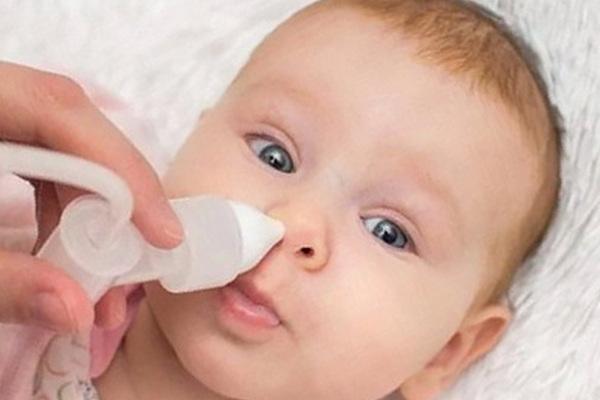A runny nose in an infant is always a problem for parents. Problems falling asleep, breathing and sucking are just some effects of a runny nose that make your baby cry. They encourage you to use the full range of home remedies to unblock your nose.
Runny nose in an infant – causes
Usually, a runny nose is caused by a viral infection, air pollution, or allergens. How long does a child have a runny nose? Lasts up to a week. If symptoms persist after this time or are accompanied by a high fever, see your doctor. The only exception is newborns – you should consult your pediatrician as soon as you notice the first symptoms. The doctor will decide whether and what to give the child a runny nose.
Therefore, before heading to a clinic where all the bacteria in this area are rampant, it is best to try out home remedies for a cold in an infant. Moist cough in infant. Even if you have read this before, let me briefly remind you of the most important home remedies:
1. Inhalation
They removed nasal discharge and relief for your little one.
2. Patting
Most effective at some time after inhalation.
3. Cleansing the nose
Here they are great:
- All nasal aspirators
- sprays with mineral salt that moisturize and cleanse the nose
- Or saline in ampules
I always use saline solution before using the aspirator. Two-3 drops into each nasal septum so that the aspirator draws in any nasal discharge.
4. Air humidification.
5. Get a good night’s sleep.
Your baby will sleep better if the crib is positioned slightly diagonally from the headboard. The easiest way is to place a rolled towel under the mattress or place a few books under the foot of the bed.
What else from a cold in an infant?
6. Adequate room temperature and frequent ventilation of the apartment.
The temperature in the children’s bedroom should be in the region of 20-21 °C. Ideally, the room should be ventilated before going to bed.
7. Walking
If the child does not have a fever and there is no wind outside, a runny nose in itself is not a reason to give up daily walks.
8. Frequent feeding.
A stuffy nose makes it difficult for a baby to breastfeed, so it should be applied to the breast more often. In addition, mom’s milk contains antibodies that will help you get over a runny nose faster.
9. Lying on your tummy.
In this position, gravity will do its job and make the nasal discharge drain faster.
Runny nose in an infant – alarming symptoms
A green and thick discharge can be the start of a bacterial infection. On the other hand, a fever, increased irritability of the baby (often during feeding), rubbing the hand with a pen, or rubbing the head against a pillow can indicate an ear infection. It happens when nasal discharge is not excreted and enters the ear. There it dries, creating ideal conditions for bacteria to grow. In both cases, prompt consultation with a pediatrician is necessary.
Young children are more likely to get sick because of an immature immune system, and because of the structure of the airways, which contributes to the development of infections (the smaller the child, the narrower and shorter the airways). Each infant can catch a cold six to nine times a year. Contrary to appearances, infections are not only evil and a source of stress – each of them strengthens the immune memory, providing more resistance to diseases in the future.








